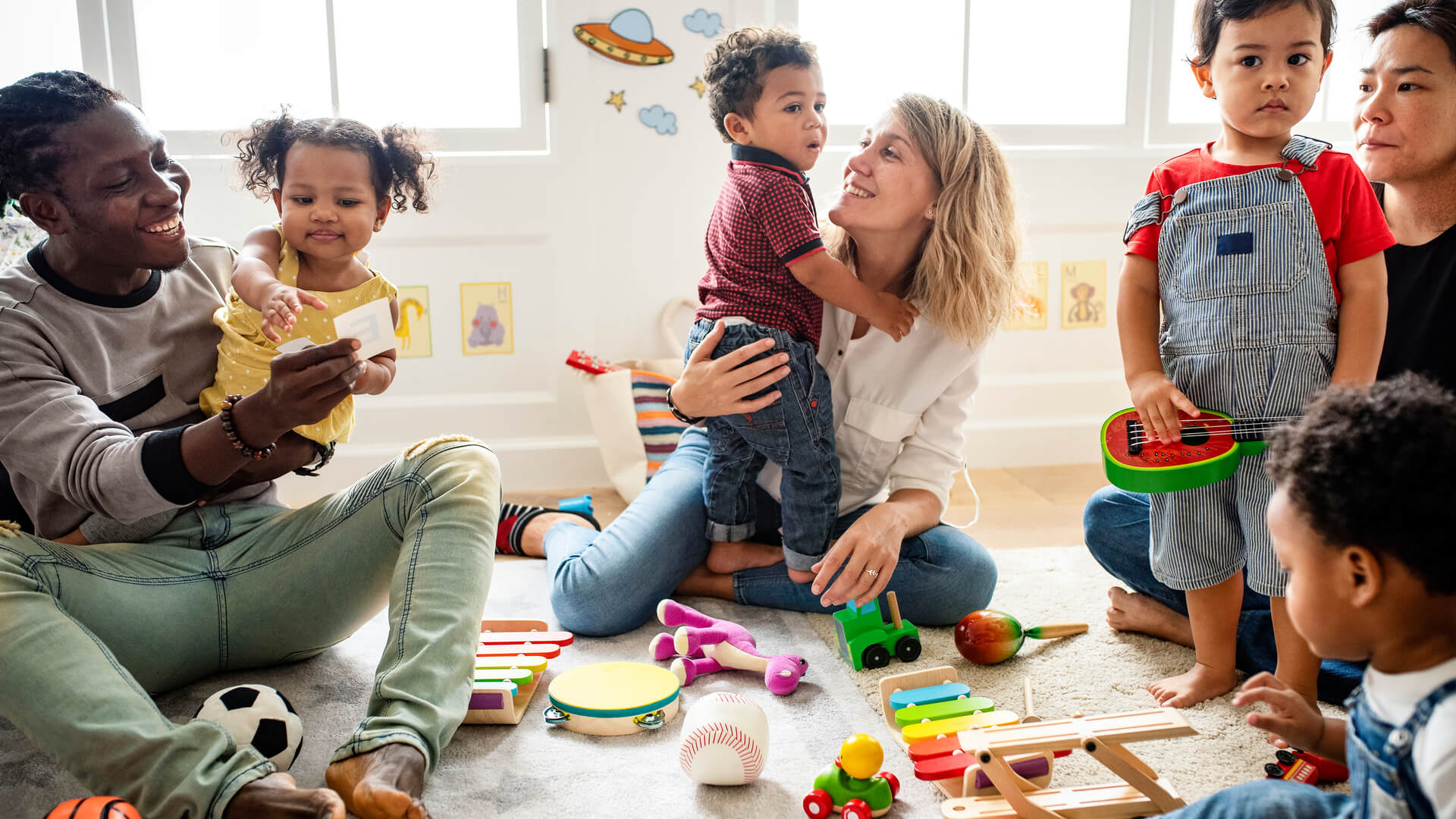How to Teach Music for Babies
While most children won’t grow up to become the next great composer, baby music class has plenty of benefits for your baby’s development.
In This Article
- When to start music classes for babies
- Are music classes good for babies?
- Increases bonding
- Teaches early math skills
- Improves memory
- Aids early language development
- Helps coordination
- Teaches self-expression
- Gives a sense of achievement
- How to start a baby music class
- Introduce music from different cultures
When to start music classes for babies
In the seventh month of pregnancy, a baby can hear sounds outside the womb. This is their first introduction to sound. But when is the right time to start music classes for babies? Although there’s no magic age to begin, typically babies start interacting to sound and playing music around seven-months-old.
Every baby is different with their development! Some may start before seven-months-old and others after. It all depends on how fast a baby develops. Here are some developmental milestones your baby will need in order to start your music class!
- Be able to sit up unassisted
- Grasp and hold onto instruments
- Respond to sound
Are music classes good for babies?
Yes! A recent study published in ScienceDaily found children under one who participated in parent-child music classes “smile more, communicate better, and show earlier and more sophisticated brain responses to music.” This study highlights that interactive music experiences are good for babies even before they are walking or talking!
Here are some other amazing benefits of baby music class:
Increases bonding
Music helps your baby learn to respond better to your voice. The two of you can share a love for music in an interactive activity that only strengthens the bond between parent and child.
Teaches early math skills
Simple counting games can be incorporated into music class. This includes simple activities like counting beats out loud.
Improves memory
Music is associated with learning patterns, rhythms, and memorizing song lyrics. While it may be overwhelming at first, your baby will begin to memorize rhythms and song lyrics with more and more music classes.
Aids early language development
By singing songs your baby will learn word associations and the meaning behind each word. Songs like “Head and Shoulders (knees and toes)” will also introduce your baby’s body part identification.
Helps coordination
Music involves a tremendous amount of coordination. Not only does a baby need to bang or shake an instrument, but includes rhythm and timing.

Teaches self-expression
Through music, babies can discover how to move with sound, what songs and instruments they like best, and how they like to learn.
Gives a sense of achievement
Activities like a music class allow your child to learn new skills that they can be proud of and be excited to accomplish over and over again.
How to start a baby music class
The number one thing to remember is to make music classes fun! Since your baby is likely around seven months old, music activities need to be interactive and entertaining. Although many parents want to dive into music theory, babies don’t need to know music theory just yet.
Instead, the best way on how to start a music class is to start making music together! Start with instruments your baby can make noise with easily.
Instruments to include in baby music class include:
- Maracas
- Bells
- Tambourine
- Egg shakers
- Drums
When your baby has mastered these instruments, you can then try instruments involving increased coordination such as:
- Xylophone
- Piano
- Triangle
- Claves
- Castanets
Of course, there are many more instruments available to include in music lessons. But introduce one or two instruments at a time and give your baby time to master their coordination with each instrument.
Introduce music from different cultures
Another aspect to include is to not only experiment with different instruments but different musical cultures. Each area of the world has its own music style. Introduce different cultures and music styles from around the world to your baby. This will help your baby not only learn early cultural acceptance but an early appreciation of different music styles as well.
Don’t worry if you are feeling overwhelmed with when to start music classes or how to start a class, just start simple! Find a time during the day where your baby is calm and happy like after a nap and start with one simple instrument and an easy song you know like “Old McDonald” or “Head and Shoulders.” Once your baby begins to understand how to play musical instruments and (eventually) sing songs, your child will have a deep appreciation for music as a whole. Plus, all the music classes will aid to your baby’s development!
 By Liz Talton
By Liz Talton